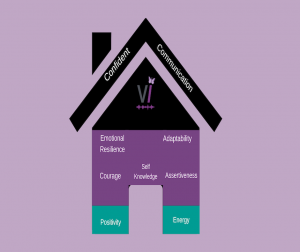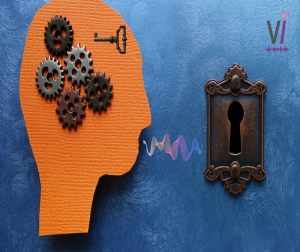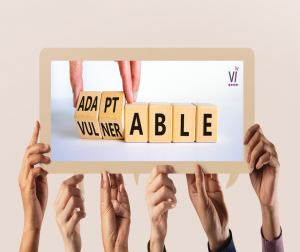
AKA performance Anxiety
Stage-fright: You’ve all felt it to some degree haven’t you, at some time in your lives? The sweaty palms, dry mouth, racing heart or perhaps impending panic? I know I have. Perhaps it was an exam, a job interview , an audition or just speaking or singing in front of others. This is also known as performance anxiety.
Why does it Happen?
Your responses are all part of your built in safety system. You may have heard of this as the “fight or flight” response, designed to save you from disaster when in mortal danger. For example, If you are about to be eaten by a lion, your body releases adrenalin and a cascade of other hormones so that you can either fight or escape. Once the danger has passed your body then works to calm you down. Unfortunately, your body may do the same thing if you have to perform in an audition (exam, concert), because it doesn’t distinguish between the life-threatening threat and the performance situation.
Stage-fright is “just nerves” right?
The nervousness you feel can actually help you to perform better, if you can channel and use the energy and then calm down. This is ok. However, a sense of dread and panic that renders you incapable is not. In this case performance anxiety has become debilitating. Calming down doesn’t happen because the “escape” or action does not happen. This creates a cycle of stress, nervousness and panic. Over time this can lead to loss of confidence and self esteem.

This is simplified and doesn’t show all the hormones involved.
Why though, what is the “threat”?
Here are some of the reasons you may become affected by performance anxiety:
- Perfectionism: You may have unrealistic expectations of yourself, allowing the 1% mistake to over-ride the 99% of great stuff!
- Fear of letting down others: You feel embarrassed or afraid of fear itself.
- Comparing yourself to others: You allow this to “cancel out” your own achievements, making you unable to appreciate what you can do.
- Trying to please others: e.g. parent, partner, teacher. Looking for affirmation.
- Feeling out of “comfort zone”: You are not used to the situation and it scares you.
- Bad experiences: Your own past experiences may be a trigger for fearing a new or similar situation.
So how can I overcome stage-fright (performance anxiety)?
This may be different for individuals and it depends on how badly affected you are. Having said that, here are some things that can help the stage-fright you may experience:
- Prepare properly: Know your material backwards, forwards and inside out! Practise regularly, allowing enough time to focus.
- Set goals: You need to make these realistic. Divide your preparation into small doable stages and make these your goals. Achieve them one at a time. No-one has ever climbed Everest in one jump.
- Speak positively to yourself: Avoid telling yourself that you “can’t do it” or that you are “stupid” for feeling this way – tell that “inner critic” to shut up, out loud if need be. Practise this.
- Challenge yourself: Every now and then set yourself a small performing challenge e.g. performing for a few friends, colleagues, a teacher or at a short concert or gig. Gradually build up these challenges until you can meet greater ones. That way you don’t have to be out of your comfort zone completely from the word go. Each challenge will help you to deal with new situations and the stage-fright won’t be as severe.
- Use your mind: Imagine yourself performing and all going well. Imagine beyond the performance and how great that will feel. Promise yourself a treat and make sure you have it after the event.
- Breathe: Slowing down your breathing for just three minutes can break the panic cycle. Calm or Headspace apps are brilliant for this and both have free versions. Here’s a link to a lovely breathing focus on Facebook
- Know the arena: Visit your performance space before the day if possible. Get to know the feel and make friends with the space. If you have the chance to speak/sing in there as well, even better.
- Move about: While you wait to perform (off stage) move around on the spot or make light bounces. This helps because it uses up some adrenalin. Becoming rigid will increase tension.
So, Overall ..
Remember that you are a unique person with unique skills and talents. You do not have to perform for anyone else, do it for you. No one is perfect. You can only do your best in a given situation. In this day and age people are encouraged to be critical rather than constructive. If you meet someone like that, remember that this type of opinion is subjective. Seek advice and feedback from those who know you and your work, and have your best interests at heart. Most of all, be a person who encourages and helps others. Forget the comparisons and be happy to be you.

Stage-fright can be normal
You may have some degree of stage-fright due to an adrenalin increase before a performance and this is normal. In fact, I think you need a bit of this to perform well. If you use the ideas above it can make things seem less threatening and help you to avoid getting stuck in the nervous cycle.
Need more help?
Whether you are a teacher, singer, actor or public speaker, you may need more help and information on this, especially if you are badly affected by stage-fright (performance anxiety). Feel free to get in touch if you’d like to discuss things more. However, if things are very debilitating then do speak to a health professional for help.
Here is a an excellent publication by the ISM with lots of detailed advice for teachers who need to help students with performance anxiety. The ideas here will also help you if you are affected yourself.



